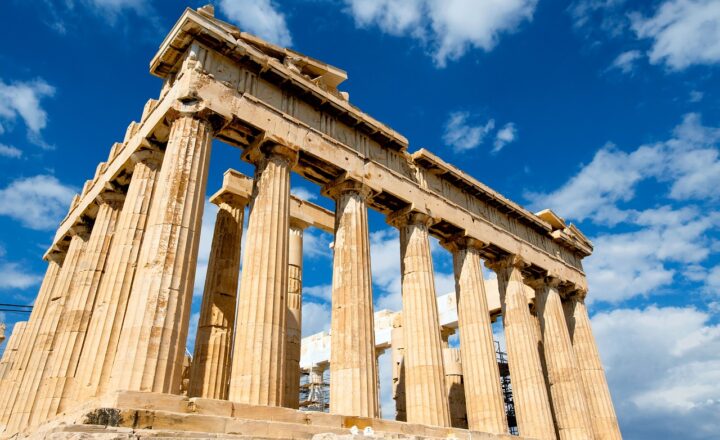The Evolution of Democracy: How the Concept of Governance Changed Over Centuries
November 16, 2024

Democracy, derived from the Greek words ‘demos’ (people) and ‘kratos’ (power), has evolved from its ancient origins into a complex system that shapes the governance of countries worldwide today. This article delves into the fascinating evolution of democracy, exploring how its meaning, implementation, and global impact have changed over centuries.
1. The Birth of Democracy in Ancient Greece
In the 5th century BC, Athens witnessed the emergence of the first known form of democracy. The Athenian model allowed free male citizens to participate directly in decision-making processes, with assemblies and councils where laws were debated and votes were held. This early form of democracy was revolutionary in that it allowed citizens to have a say in their governance, contrasting sharply with monarchies and oligarchies that dominated the era.
However, it is essential to note that this democracy was limited. Women, slaves, and foreigners were excluded from participation, indicating that even in its formative years, democracy was not universally inclusive.
2. The Roman Contribution: A Republic with Democratic Elements
The Roman Republic, established in 509 BC, introduced another dimension to governance with a blend of democracy, aristocracy, and monarchy. While citizens elected representatives to the Senate, where they made policy decisions, the system was complicated by social class distinctions and the power of patricians (the wealthy class).
Roman innovation, particularly through the expansion of citizenship and legal principles, influenced future democratic developments and established foundations for legal governance and civil rights.
3. The Middle Ages: Democracy in Decline
Following the fall of the Roman Empire, democracy faced significant challenges during the Middle Ages. The rise of feudalism placed power in the hands of monarchs and lords, while the majority of the population lived under harsh conditions without a voice in governance.
Despite these challenges, councils and assemblies began to emerge in some regions, providing limited participation. These institutions laid groundwork that would eventually influence later democratic movements, particularly in Europe.
4. The Renaissance and Enlightenment: Rebirth of the Democratic Ideals
The Renaissance (14th to 17th century) and the Enlightenment (17th to 19th century) brought about a revival of interest in democracy as thinkers like John Locke, Montesquieu, and Rousseau philosophized about individual rights, government as a social contract, and the separation of powers. The Enlightenment emphasized reason, individualism, and skepticism of authority.
These ideas spurred revolutionary movements in the late 18th and early 19th centuries, leading to significant upheavals in governance. The American Revolution (1775-1783) and the French Revolution (1789-1799) synthesized democratic principles, leading to the establishment of republics and the expansion of civil rights.
5. Modern Democracies: Evolution and Diverse Models
As democracy continued to evolve through the 19th and 20th centuries, various models emerged. The concept of representative democracy took hold, allowing citizens to elect representatives to make decisions on their behalf.
Numerous countries adopted democratic constitutions, but the journey was not without setbacks. Authoritarian regimes arose at various points, often resulting in civil rights violations and suppression of dissent. Key events like World War I and World War II demonstrated the fragility of democratic institutions.
In contrast, the latter half of the 20th century saw a wave of democratization. The fall of the Soviet Union and the end of colonial rule led to new democracies emerging in Eastern Europe, Africa, and Latin America. The concept of liberal democracy gained momentum, characterized by its emphasis on human rights and pluralism.
6. The Digital Transformation and Democracy Today
In the 21st century, we find ourselves amidst a new evolution of democracy influenced by technology. The internet, social media, and digital platforms have transformed how citizens engage with political processes. While these innovations offer unprecedented access to information and civic engagement, they also present challenges, including misinformation and cyber threats to democratic processes.
Moreover, varied notions of democracy emerge globally. Different cultural, historical, and social contexts lead to diverse interpretations and implementations of democratic principles. For instance, while Western-style democracies emphasize individual rights and freedoms, other countries adopt unique forms of governance that prioritize collective welfare and social harmony.
Conclusion: The Ongoing Evolution of Democracy
The evolution of democracy is a testament to humanity’s relentless pursuit of governance that respects individual rights while promoting collective good. From the direct democracy of ancient Athens to the complex systems we see today, this concept has undergone significant transformations.
As we navigate the complexities of modern governance in an ever-changing global landscape, the challenge remains: how can we ensure that democracy not only survives but thrives? Addressing issues of representation, inclusivity, and technology’s role in politics will define democracy’s next chapter. By learning from our past and adapting to current realities, we can work towards a more equitable and just democratic future for all.







